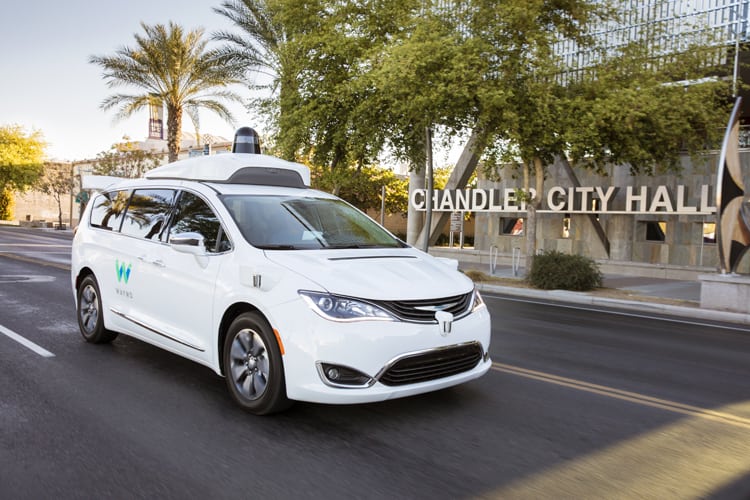There’s no denying that last year was an incredible year for green tech and electric vehicle stocks. Elon Musk briefly took the crown of the richest man in the world thanks to Tesla’s shocking 750% climb … And a Chinese competitor, Nio Inc., rose by a remarkable 1295% over the same amount of time. Mentioned in today’s green tech commentary includes: Bloom Energy Corp., Intel Corporation, Alphabet Inc., Electra Meccanica Vehicles Corp, Fisker.
While those who didn’t buy in on these two giants while they were cheap may feel that they’ve missed the rally … that couldn’t be further from the truth. The story is much larger, and there are other EV and EV-related stocks that continue to have tons of room to run. There are even stocks that are flying completely under Wall Street’s radar–and they could even see gains that exceed those of Tesla or Nio.
Nothing screams the “next Tesla” like Fisker (NYSE:FSR), an EV maker that is betting on futuristic and fully recyclable materials, headed up by a legend in automotive design …Or even a tech company creating its own green ecosystem like Facedrive (FD,FDVRF), a leading Canadian startup that’s got several EV verticals, including its recent acquisition of Steer– a Washington, DC-based EV subscription company that is looking to upend the auto industry by completely transforming the notion of car ownership as we know it.
Anything EV Is Golden Right Now
Yes, EVs are golden …. Biden’s victory, a global clean energy push and the ongoing pandemic are the main drivers behind a $40-trillion energy transition of which electrified transportation will be the lion share.
Yes, Tesla will continue to surprise the markets, and for short-sellers who lost $40 billion betting against the EV behemoth, it’s time to look for a new gig.
Fisker, for example is much like a Tesla type EV maker: It’s working on fresh EV concepts, and has a legend behind the wheel in the form of Henrik Fisker. And don’t be fooled, it’s not just another EV SUV–it’s a vehicle constructed with recyclable parts, something that pleases activist investors and huge institutional funds that are looking for the next epic investment that could mimic Tesla.
Fisker isn’t going to start producing its famed Ocean SUV until 2023, with significant revenues coming in from advance orders not expected until late 2021. This may be a reason for Wall Street’s elite not to go long on Fisker, but may just be the perfect opportunity for investors to get in on the ground floor of what could become the next big EV producer.
Next to Fisker, there’s Facedrive – one of the front-runners of Canada’s ‘Silicon Valley’—and another EV related success. We like the flagship carbon-offset ride-sharing and food delivery side their business, but we’re extremely excited about their recent acquisition of Steer.
Why?
Because this isn’t just the start of the golden age of EVs … it’s the start of a completely different lifestyle.
Facedrive (FD,FDVRF) added Steer to their growing list of acquisitions in September 2020, and we expect the news flow to increase over the next few months as two of the most innovative EV-linked tech companies combine their forces to upend car ownership in North America.
Steer isn’t anything like your average car rental company (Hello Hertz). It offers consumers their own private EV showroom (virtual, of course), sporting on-demand EV delivery for consumers, offering a flexible alternative to car ownership.
Steer users are able to drive the newest and hottest EVs on the market. The platform offers something for all budgets and tastes. Forget about the extra insurance – it’s all included in the price. No maintenance. No hassle whatsoever. It’s simply the most revolutionary app in on-demand EVs so far. Facedrive stock has pulled back over the last few days after going on a bit of a tear. There appears to be support at this level and this could be a good entry point for new investors.
Exelon, a $40B market cap energy giant is a strategic partner in Steer. And with everyone switching to EVs … the next stock to watch is Electra Meccanica Vehicles Corp (NASDAQ:SOLO).
SOLO is another up-and-coming electric vehicle producer to watch. It’s turning heads on the street and on Wall Street with its sleek and unique single-seat electric vehicles. The Canadian company’s electric car carries a lower, and more appealing price point for consumers that do not need all the bells and whistles that come with luxury brands like Tesla and NIO or even conventional Detroit classics like GM and Ford. It’s also on the cusp of an emerging market. In fact, demand for single-seat electric vehicles are projected to grow significantly in the coming years, and SOLO is one of the few companies in this market, representing a great opportunity for investors looking for an easy-entry EV stock with a lot of potential upside.
Electric Meccanica isn’t focused solely on the single-seat niche, however. It’s also planning to roll out an electric sports car for two, the Tofino, and another electric two-seater boasting an old-school design that will appeal to a wide range of consumers. From classic car lovers to EV fanatics, it’s latest fleet will definitely generate some headlines and water cooler conversations. Given that the stock is only trading at $8 at the moment, there is a lot of room to grow. And early investors in Electra Meccanica could stand to see some substantial returns.
Though electric vehicle companies are getting most of the attention, autonomous vehicles should not be ignored. Robot cars will not only reduce emissions, but completely change the idea of car ownership as we know it. And Alphabet Inc. (NASDAQ:GOOGL) is, without a doubt, a leader in this burgeoning industry.
Waymo, a subsidiary of Alphabet, has had cars driving themselves across the United States for several years. In fact, in Arizona alone, Alphabet’s self-driving cars have logged over 6.1 million miles. To put that in perspective, that means that Alphabet’s autonomous cars have driven the distance between New York City and San Francisco over 2100 times. Or, as the company explains, “over 500 years of driving for the average licensed US driver.” Even more impressive, however, the vehicles were only involved in 47 “contact events”, and the vast-majority of the collisions were the result of human error and none resulted in any sort of severe injury for anyone involved.
Though these tests are very promising for Alphabet’s Waymo, there are still some hurdles to overcome. First and foremost, these lengthy trials took place in Phoenix, a city not exactly known for extreme weather. Second, an issue that may frustrate many drivers, the vehicles operated in a sort of hyper-cautious mode, driving at slower speeds and taking sometimes unnecessary precautions to avoid conflict.
Though Alphabet has received much of the credit for these massive feats, a widely loved and wildly popular chipmaker is actually the driving force in these endeavors. Intel Corporation (NASDAQ:INTC) and Waymo teamed up nearly half-a-decade ago, and have worked together to fine tune this futuristic technology together ever since. Through their mutual knowledge of hardware and software, the tech giants have made leaps and bounds towards building the car of the future.
And Intel isn’t one to be pigeonholed into a sole industry, either. In addition to its efforts with Waymo, Intel has also been on the forefront of developing its own artificial intelligence and vision hardware. Back in 2017, it acquired MobileEye, a supplier of camera-based chips and software to the global mobile industry. And now, in a new deal with Luminar, another emerging tech company on the forefront of this movement, Intel is positioning itself as its own giant of this new sector.
LIDAR technology will play a massive role in the future of not only self-driving cars, but also in the advancement of robots, mapping, security and more. The world is ever-changing and these industries will help shape the future as we know it, and Intel is acutely aware of this. While the electric vehicle industry is grabbing headlines today, Intel is already looking to the future. And that bodes well with investors looking to capitalize on these trends.
With Big Tech and upstarts like SOLO and Fisker getting so much attention, some alternative fuel companies are flying under the radar, and that could be beneficial for those who jump on this train early. Take Bloom Energy Corp. (NYSE:BE), for example. Bloom designs, manufactures and sells solid-oxide fuel cell systems. And, yes, there’s been a ton of cash burn up to this point, but it’s heralding massive innovation–and that’s what tech startups are all about. Growth runways, not immediate profit.
That’s why we are willing to throw tons of money at our innovative future. Eventually, the narrative changes and for the successful companies, the cash burn stops and there starts to be payback for investors. Anyone who didn’t get in on time got left in the innovation dust.
That’s what’s already happening with Bloom. Savvy investor patience is paying off. Bloom is now on track to be the first fuel cell maker to become cash-flow positive. And this could all be about to get even bigger. Why? Because this relatively small company is thinking in huge terms: We’re not just talking about fuel cells for construction vehicles or to power remote electricity generation … Bloom is thinking far bigger than that. It’s targeting utility-scale applications of fuel cells and industrial-scale applications, and drawing in some very big names in the process.\
Each one of these innovative tech companies are set to ride the Tesla wave in a time where EVs are set to transform the world.




